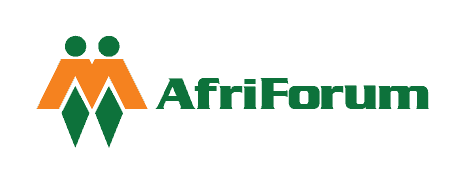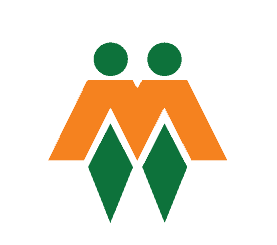AfriForum announces its national blue and green drop results
The civil rights organisation AfriForum tested the quality of drinking and sewage water in 156 South African towns during May and July this year. The drinking water of three towns (Ellisras, Heilbron and Villiers) did not meet the national standards for drinking water. After the municipalities concerned did not address the problem, AfriForum used new water purification technology to clean the water.
These tests form part of the organisation’s blue and green drop campaign, involving the respective towns’ communities, training them and distributing the necessary equipment to AfriForum branches in South Africa.
“Since 2013, the country’s water resources have been under pressure after droughts that have occurred in many parts of the country and which are still affecting parts of the Western Cape, Northern Cape and Eastern Cape. Communities must insist on their right to access clean running water and they must hold the respective municipalities accountable by regularly monitoring the quality of drinking and sewage water. The water tests conducted by AfriForum show worrying results, especially in terms of poor sewage management, and indicate the continuous decline in South Africa’s infrastructure and a lack of skilled personnel to manage water bodies. AfriForum cautioned the towns that did not meet the set microbiological standards and requested the municipalities concerned to restore the water standard within 24 hours,” says Marcus Pawson, AfriForum’s head of Environmental Affairs.
“The Department of Water and Sanitation (DWS) as well as local municipalities are responsible for the sewage crisis in which the country finds itself, despite a budget of more than R15 billion for the DWS,” says Pawson.
He further says that the department’s appointment of 31 Cuban engineers is a fruitless and wasteful exercise, as they have already been operating in South Africa for two years, without the country’s infrastructure showing any improvement. This was done in spite of the fact that South Africa has its own experts who are capable of doing the work at a more affordable budget.
The department returned R827 million to the Department of Finance in the 2015/2016 financial year because the money was not spent. This brings the unscheduled amount to more than R2 billion for the past few years; while an estimated 4 200 megalitres of raw sewage end up in our river systems daily.
Blue Drop
The quality of drinking water was tested in most municipalities across South Africa, and three of these municipalities did not meet the quality standards for drinking water. “The 2014 results showed that 11 water drinking water systems did not meet the standards, while this number dropped to five towns in 2015 and again increased to seven towns out of 132 in 2016,” says Pawson.
AfriForum warned the community members of the above-mentioned areas not to drink the water, while the municipalities concerned received notices to rectify the quality of their water. Follow-up samples indicate that the Ngwathe Local Municipality has heeded AfriForum’s request, and that the water is now clean. The Lephalale Local Municipality has also responded to AfriForum’s request, but the drinking water is not yet aesthetically up to standard and therefore does not meet the specified drinking water standards.
The town of Villiers and Qalabotjha, which are within the jurisdiction of the Mafube Local Municipality, are affected by poor water services. Here, the municipality has collapsed completely and provides little to no service. As a result, the community has taken over water purification plants themselves and supply clean drinking water to the towns independent of the state.
Green Drop
AfriForum tested the sewage water systems of 88 towns in May and June 2017, of which 59 did not meet the set quality standards; compared to 26 out of 72 sewage water systems that did not meet the standards in 2016. Clearly, the management of sewage water treatment plants (SWTP) in South Africa is declining drastically.
“This year, AfriForum managed to test the municipal waste water of several municipalities, after the organisation was denied access to certain sewage water systems by some municipalities in the past. This makes sense, given the dire state of waste water management in the country – an average of 67% of South African sewage water systems do not function within the regulatory requirements. A general decline in sewage water management has been observed throughout South Africa this year,” explains Pawson.
“The 59 wastewater treatment plants that do not meet the standards can pose a threat to human health, food security and the environment. The standard of sewage water systems should be regarded as a priority in 2017, given the drought conditions in South Africa and the fact that the country is a water-scarce land,” says Pawson.
South Africa’s national water quality standards allow 1 000 units of E. coli per 100 ml of water in treated sewage water in general waste water limits.
AfriForum is in the process of issuing letters to the above-mentioned municipalities to notify them that they do not meet the set requirements. The civil rights organisation further undertakes to position itself across South Africa and to conduct annual evaluations such as these in order to monitor the infrastructure continuously.
According to the Department of Water and Sanitation’s 2014 Blue Drop Report, 1 036 drinking water systems were evaluated, with only 44 systems complying with blue drop status standards. The summarising Green Drop Report of 2013 indicated that only 60 out of 824 waste water systems received green drop status.
Pawson believes that AfriForum’s results can be regarded as the most reliable information for a national reflection of South Africa’s water management, given the Department of Water and Sanitation’s withholding of the Blue Drop Report since 2014 and the Green Drop Report since 2013.
* For the names and further details of the towns that did not comply to the set standards, contact Marcus Pawson of AfriForum at marcus@afriforum.co.za or Chris Boshoff at chrisb@afriforum.co.za.


